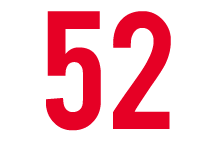On the evening of May 16, 1979 Arthur McDuffie was riding his motorcycle when the police attempted to pull him over. A chase ensued at high speeds through a residential area. Eventually, McDuffie surrendered. Then he was beaten by police officers. He slipped into a coma and died a few days later.
Immediately following the incident, police officers took steps to cover up what happened. Officers ran over the motorcycle that McDuffie had been riding to make it look like McDuffie’s injuries were a result of him losing control of his bike.
The officer who had been dispatched to conduct a routine investigation of the scene found that upon his arrival that the scene had been “destroyed,” meaning that the scene had been cleaned up. This made it impossible for him to actually investigate.
Nevertheless, the county medical examiner was suspicious. He did not find the injuries that McDuffie sustained to be consistent with the story that the officers had told through the paperwork that they had submitted and statements they had made. The medical examiner thought that McDuffie appeared to have been beaten by a pipe, night stick, or heavy duty flashlight.
Officers suspended in connection with the McDuffie case.
Because of the media attention paid to the case, the police officers’ defense attorneys asked that the trial be moved out of Dade County. The trial took place in Tampa.
 Number of black jurors in this case. The defense team used their peremptory challenges to ensure that no blacks would serve on this jury.
Number of black jurors in this case. The defense team used their peremptory challenges to ensure that no blacks would serve on this jury.
 Officers who were granted immunity for their testimony in the case.
Officers who were granted immunity for their testimony in the case.
Incidents of racial violence that might be described as mini riots that had occurred in Dade County, Florida in the 1970s.
Incidents that some black residents were aware of in the months leading up to the riot.
- As a part of a drug raid Nathaniel Lafleur, a black junior high school teacher’s home was entered. In the process of this raid, Lafleur was pistol whipped and had a pistol held to his head. Police threw a bucket of water over him during this encounter, and roughed him up a bit. This search lasted over two hours. Ultimately, Lafleur was charged with resisting arrest and battery of a police officer. A loaded pistol was confiscated. No drugs were found. His hospital visit following the incident suggested that he had suffered kidney damage during the encounter. The police had been mistaken, and had entered the wrong house.
- Randy Heath, a young black man was driving with his sister when he made the decision to stop the car and relieve himself outdoors. As he stood next to a building, off-duty police officer Larry Shockley ordered Heath to put his hands against the wall. Shockley eventually stated that he had placed his cocked pistol behind Heath’s head, and that the gun accidentally went off, killing Heath. Heath was cited for negligence in mishandling his weapon, but the grand jury found no evidence for any criminal wrongdoing.
- Willie T. Jones, a member of the Florida Highway Patrol stopped an eleven-year-old black girl who was walking home from school. He told her that she fit the description of a girl who had been seen stealing candy and ordered her into the back of his car where he fondled her. She reported this to her family. She was able to identify the officer who had molested her. He pleaded no contest to charges against him and was allowed to resign from the force, and ordered to both attend counseling and to pay for any counseling that the young girl needed. Within months, it was determined that he no longer needed counseling. Then, he ceased paying for the girl’s counseling. At that point, the girl’s family went public with this incident, which they had avoided in an attempt to protect the girl. The case against Mr. Jones was reexamined. A federal grand jury indicted him for illegally arresting and sexually abusing the girl. Before Jones could be arrested, however, he fled the county.
- Johnny Jones, Dade County’s first black superintendent, was charged with attempting to steal expensive plumbing fixtures for his own vacation home. Immediately following Jones’ indictment, Jones was removed from his position When the case went to trial, the prosecution used their peremptory challenges to ensure that the jurors in this case were all white. Jones was found guilty of second degree grand theft. Many local blacks felt that his race determined the outcome of these events.
 Weeks of testimony presented in the trial associated with the Arthur McDuffie killing.
Weeks of testimony presented in the trial associated with the Arthur McDuffie killing.
Time in hours it took for jurors to reach their decision. All officers were acquitted of all charges.
The evening of the verdict, rioting began. Liberty City, the black neighborhood where much of the rioting took place was a popular route through which many people drove to get from one side of Miami to the other. This neighborhood became a very dangerous place to be for white motorists during the rioting. Police, then, barricaded the entrances to the neighborhood trying to keep whites out in an attempt to protect them.
People killed during this riot, including one police officer who died of a heart attack as he performed his duties during this riot. Unlike in some of the urban riots that preceded this one, causing direct injury to individuals rather than property or other symbols of perceived injustice was present. Four whites were taken from their vehicles and beaten to death. Two whites were stoned to death, trapped in their cars. One white person was killed because someone set the car he was in on fire while he was in it. 1 light-skinned immigrant from Guyana, who may have been mistaken for a Cuban, was also burned to death.
During this time, the presence of Cubans in the area was a source of tension for some blacks. These people felt that their opportunities for jobs and advancement were eclipsed by the arrival of Cuban immigrants. Many of the Cubans who had come to Florida came from a variety of backgrounds and experiences, meaning that in some cases the new inhabitants had a skill/experience advantage over much of the population in Liberty City, where the rioting occurred.
Minimum number of cars that were vandalized by police, spray painted with the words “looter” or “thief.” 5 officers were suspended because of this activity. Some of the cars that they vandalized were full of looted goods.
Square miles covered by a curfew intended to help cool down riotous activity.
Jobs lost as a result of this riot.
Estimated property loss for businesses during this riot.
Felony misdemeanor charges pursued because of this riot. Three jail terms resulted.
Businesses reported as looted and burned during this disturbance.

Amount that each of Arthur McDuffie’s children received as a part of a $1.1 million settlement with the Dade county commissioners in exchange for the family dropping a $25 million civil lawsuit against the county. McDuffie’s mother received $67,500. The family’s legal team received $483,833.











